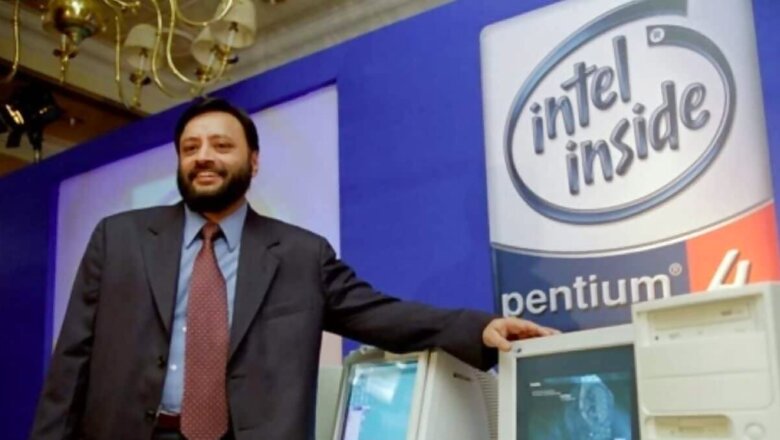
views
Renowned chip designer and former Intel India country head, Avtar Saini, tragically lost his life in a collision with a taxi on Palm Beach Road in Navi Mumbai while cycling with fellow enthusiasts.
The 68-year-old Saini, recognised for his contributions to Intel’s 386 and 486 microprocessors, as well as leading the design of the Pentium processor, was struck between Nerul junction and the NRI-Seawoods signal at 5:50 am on February 28. Despite being rushed to the hospital, he was declared dead on arrival due to the severe injuries sustained in the accident, The Times of India reported.
Accompanied by members of the cyclists group, Saini’s bicycle was hit from behind by the cab, causing him to skid on the road. The impact wedged the bicycle frame under the cab’s front wheels, and the driver attempted to flee, dragging the bicycle for a kilometer. The cab was intercepted by passing motorists near the Navi Mumbai Municipal Corporation headquarters at Belapur.
Satish Kadam, inspector of NRI coastal police, informed TOI that the accused cab driver, Hrishikesh Khade, is facing charges of rash and negligent driving leading to death.
“He has not been arrested but served with a notice under provision of CrPC directing him to co-operate in the probe and to remain present in court when a chargesheet is filed. Saini’s body has been sent for postmortem,” Kadam added.
A Mumbai native, Saini earned a Bachelor of Engineering degree in electrical engineering from Victoria Jubilee Technical Institute and a Master of Science from the University of Minnesota. Joining Intel in 1982, he played a key role in bringing the Pentium to production and was deeply involved in Intel’s transition to 64-bit processors as the General Manager of the Santa Clara Microprocessor Division.
Saini moved to Bangalore as the director of Intel South Asia in 1999, contributing to the establishment of Intel’s India Development Centre. His work on 64-bit processors culminated in the joint development of the Itanium chip across India and the US, earning him five US patents. He served as a vice president of the company until his departure in 2004.
Active for a decade in the Chembur Amateur Cycling group, Saini, who lost his wife three years ago, is survived by his son and daughter residing in the US.
Expressing condolences for Saini’s demise, Gokul V Subramaniam, President of Intel India, wrote on LinkedIn, “At Intel, we are deeply saddened by the demise of former country manager and director Intel South Asia, Avtar Saini. Avtar played a key role in setting up the Intel R&D center in India. He had a long and illustrious career at Intel from 1982 to 2004 during which he was instrumental in the design of several processors including Intel 386, Intel 486, Pentium, and more. Avtar will be remembered as a prolific inventor, an outstanding leader and a valuable mentor.”
















Comments
0 comment